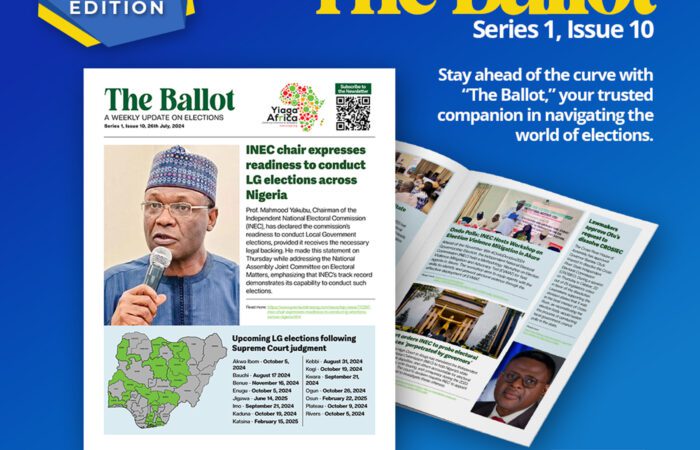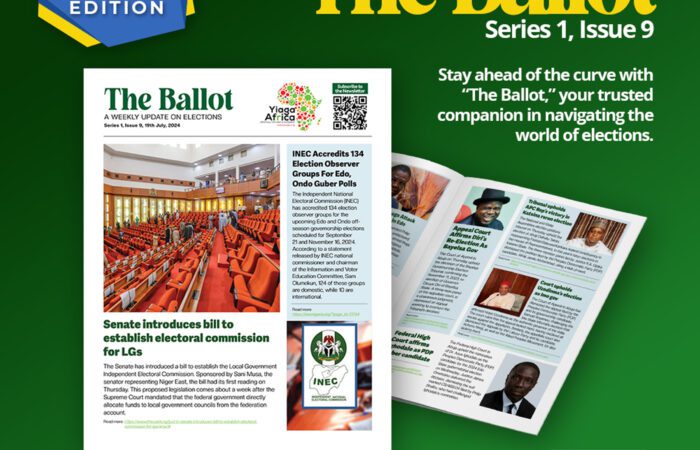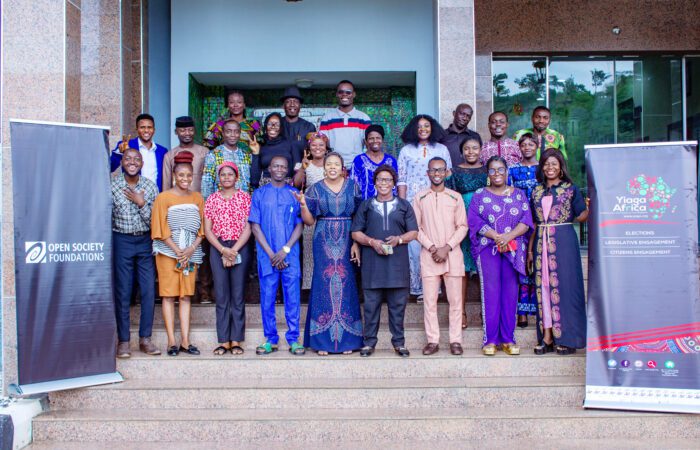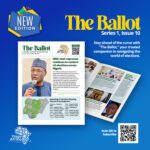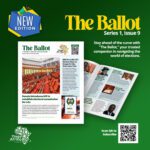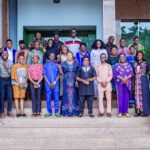The Independent National Electoral Commission says the growing number of political parties may pose challenges for the commission in the 2019 general elections.
The Chief Technical Adviser to the INEC Chairman, Prof. Bolade Eyinla, said this in Abuja on Monday at a retreat organised by the National Institute for Policy and Strategic Studies, Kuru.
While delivering a keynote address at the event, which was titled, ‘The Dynamics of Managing Political Parties Professionally,’ Eyinla said so far, 68 political parties had been registered.
Eyinla, who represented INEC, said with over 100 political associations seeking registration, the number might increase before the elections which could cause logistical problems, including the production of ballot papers.
The INEC official said if 68 parties participated in the elections, it could also mean that a total of 68 party agents would be at each polling unit, which could cause the elections to be rowdy.
“Currently there are 68 registered political parties in Nigeria. As of today, there are more than100 associations that have applied to INEC to register as political parties. This raises a number of questions which we want this retreat to address,” he said.
Eyinla further stated that he did not know whether INEC would be able to monitor the congresses, conventions and primaries of all parties contesting over 1,000 elective positions each across the nation.
He added, “We are also going to be challenged if these 68 political parties and counting continue this way. We are just a commission. I cannot begin to imagine even as the technical adviser, how we will divide ourselves to monitor party conventions and primaries of 68 political parties across the length and breadth of this country.
“Already we have envisaged some of these challenges and we are coming up with strategies to deal with them in our election project plan.
“Ancillary to this is the fact that political party agents will also increase. I can imagine 68 political party agents in a polling unit. I think these are issues that we have to manage; but most importantly, how do we manage the ballot for 68 political parties?”
Eyinla said if any registered political party is mistakenly omitted from the ballot paper, it could lead to the total cancellation of the exercise.
The INEC official said, “I think perhaps one of the largest ballots that I have seen is that of Afghanistan where the ballot paper is nearly the size of a prayer mat.
“Given our level of literacy, I think that is going to be a major challenge and as we know, the question of exclusion is a major issue in the electoral process.
“The chairman was literally sleeping and waking with the ballot for Anambra State election to ensure that no party was excluded; to ensure that the names and logo of the parties were correct because any slip could nullify the election. So, I think there is a challenge with managing the ballot that will come with the increasing number of political parties.”
The INEC official called on the National Assembly to make necessary changes to the electoral legal framework before July, saying doing so less than six months to the elections would be in contravention of ECOWAS protocol on democracy.
In his address, however, the Senate President, Bukola Saraki, said the multiplicity of political parties was good for democracy.
Saraki, who was represented by Senator Abdullahi Sabi, called on political parties to ensure that neglected groups, including women and persons living with disabilities, were integrated into party structures.
In his remarks, the Speaker of the House of Representatives, Yakubu Dogara, said there was a need for parties to have ideologies as this would strengthen democracy and engender good governance.
Reps ask INEC to submit poll budget in 30 days
Members of the House of Representatives on Monday directed INEC to submit the estimates for the 2019 general elections to the National Assembly within 30 days.
The lawmakers said INEC appeared to be foot-dragging on preparations for the polls despite releasing the timetable.
They spoke at a 2018 budget defence session with the Chairman of the commission, Mr. Yakubu Mahmud, at the National Assembly, Abuja.
He appeared before the House Committee on Electoral and Political Party Matters.
The committee is chaired by an All Progressives Congress member from Gombe State, Mrs. Aisha Dukku.
Mahmud came to defend INEC’s regular budget of N45.5bn for 2018, but excluded the budget for the 2019 polls.
He told the session that the commission would come up with the 2019 budget as soon as all possible expenditure heads had been factored into the plans for the polls.
But, members, taken back by the statement, warned that a lot of things could go wrong if INEC kept delaying, considering the fact that it had to deal with 68 registered political parties.
They also did not rule out the fact that more political parties would be registered before 2019, a development that could add to the electoral umpire’s headaches.
A member from Rivers State, Mrs. Betty Apiafi, told Mahmud that they had expected that the 2019 polls would preoccupy the commission ahead of other considerations.
She said, “The elections are almost here. There should be a budget. The commission should come up with the budget within 30 days.
“It is better to come up with a budget to work with and if there are other issues later, INEC can still forward a supplementary budget to the National Assembly.
“If we leave everything the way it is, I am afraid there will be problems that INEC may find difficult to address. This is not the time to take chances.”
However, Mahmud assured the members that he hoped to comply with their directive before the expiration of the 30 days.
He explained that part of the delay was caused by the ongoing amendments to the Electoral Act by the National Assembly.
Mahmud appealed to lawmakers to conclude the amendments so that the commission could begin to make realistic plans for the polls.
On the N45.5bn proposed as INEC’s regular budget for 2018, Mahmud said N21.4bn was for personnel cost; 4.1bn for overhead; N18.9bn for electoral expenses and N927.4m for capital projects.
The chairman added that the upcoming governorship polls in Ekiti and Osun states in July and September respectively would be funded from the N18.8bn.
He also said other “unforeseen” elections like bye-elections, cancelled or repeated elections on the orders of courts would be funded from the sub-head.
Mahmud, who also spoke on the ongoing continuous voter registration, said four million voters had so far registered, adding that the number was insignificant compared to the huge number of Nigerians, who were ripe for voting.
Mahmud also dispelled the speculation that the exercise would be closed on January 31, 2018.
He said the registration would close 60 days to the elections.
“We will continue until 60 days to the date of the next general elections. So, disregard the claim that it will end on January 31,” he said.
He spoke on some of the challenges INEC had faced, conducting the exercise, particularly finances.
For example, Mahmud said while it would cost INEC N1.2bn to pay employees in 120,000 polling units across the country in one day alone, the commission had a budget of N1.2bn for all of its operations.
According to Mahmud, it would have cost INEC N130bn for take-off alone, but the commission had just N1.2bn.
To address the funding gap, he said the commission considered an “Option B,” which was to use a centre in each of the 774 local governments in the country and “still be within the budget of N1.2bn.”
Besides the wage bill of INEC’s 16,000 members of staff, Mahmud told the session that the commission conducted 178 different elections in the last one year.
He added that the commission made over 1,135 court appearances from 2015 to January this year.
On the security of election results, Mahmud said the commission was working on an innovation to transmit results directly from polling units to its data centre, using information generated by card readers.
He said INEC had been discussing with the Nigerian Communications Commission and major telecommunications service providers to agree on a secure technology to be deployed for the polls.
“We have another meeting with the Executive Vice-Chairman of the NCC tomorrow (Tuesday).
“Telecoms service providers will be there. We are looking at how we can get the results electronically and cut out all the risks along the road in transmitting results from point-to-point,” he added.
As the session wound down, Dukku spoke about the importance of the 2019 polls, asking INEC to brace itself for the task ahead.
She promised the support of the House and its readiness to work with the commission to ensure the “conduct of a free, fair poll next year (2019).”
Source: The Punch

